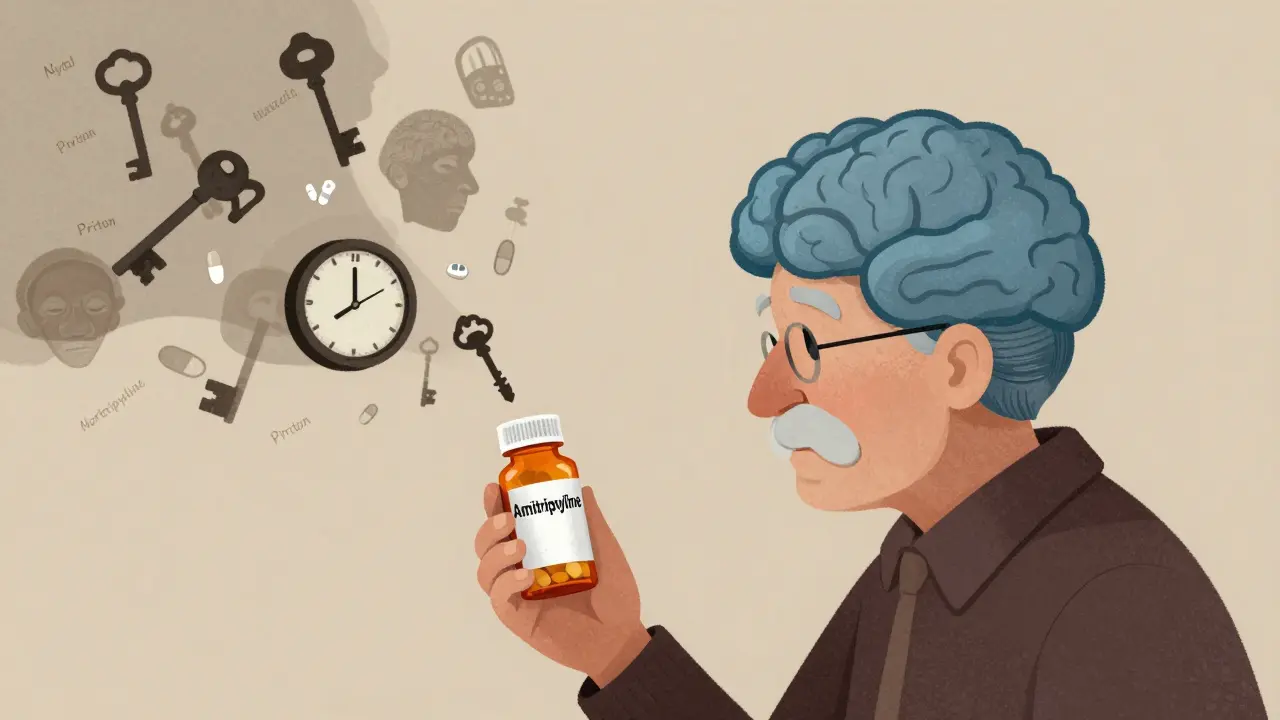Tricyclic Antidepressants: What They Are, How They Work, and Alternatives
When you hear tricyclic antidepressants, a class of prescription drugs first developed in the 1950s to treat depression by balancing brain chemicals like serotonin and norepinephrine. Also known as TCAs, they were the go-to treatment before SSRIs came along—but they’re still used today for depression, nerve pain, and even migraines. Unlike newer antidepressants, TCAs affect multiple brain receptors at once, which is why they work for some people when other drugs don’t. But that same broad action is also why they come with more side effects—dry mouth, drowsiness, weight gain, and sometimes dangerous heart rhythm changes.
That’s why doctors now usually try SSRIs, selective serotonin reuptake inhibitors like sertraline or escitalopram first. They’re safer, easier to tolerate, and just as effective for most cases of depression. But for people with treatment-resistant depression or those dealing with chronic pain like diabetic neuropathy, tricyclic antidepressants, including amitriptyline, nortriptyline, and imipramine, still have a place. Some studies show they’re more effective than SSRIs for severe depression with physical symptoms, and they’re often cheaper than newer options. Still, they’re not for everyone. People with heart conditions, glaucoma, or a history of seizures usually avoid them.
What you won’t find in most doctor’s offices today are TCAs as a first choice. But if you’ve tried other meds and nothing stuck—or if your doctor suspects your pain is nerve-related—TCAs might be worth discussing. The key is knowing the trade-offs: better results for some, but more side effects and risks. That’s why the posts here focus on real comparisons: how amitriptyline stacks up against newer drugs, what side effects you’re likely to face, and when it’s smarter to switch. You’ll also find guides on managing dry mouth, avoiding drug interactions, and spotting early signs of toxicity. This isn’t about pushing old drugs. It’s about knowing when they’re the right tool—and when they’re not.

Anticholinergic Burden with Tricyclic Antidepressants: Cognitive and Cardiac Risks
Tricyclic antidepressants like amitriptyline carry high anticholinergic burden, increasing risks of cognitive decline and dangerous heart rhythm changes. Safer alternatives exist, and many side effects can be reversed by switching medications.
December 15 2025
Amitriptyline vs Alternatives: Detailed Comparison for Depression and Pain Management
A concise guide comparing amitriptyline with common alternatives, covering efficacy, side effects, safety, and how to choose the right medication.
October 9 2025